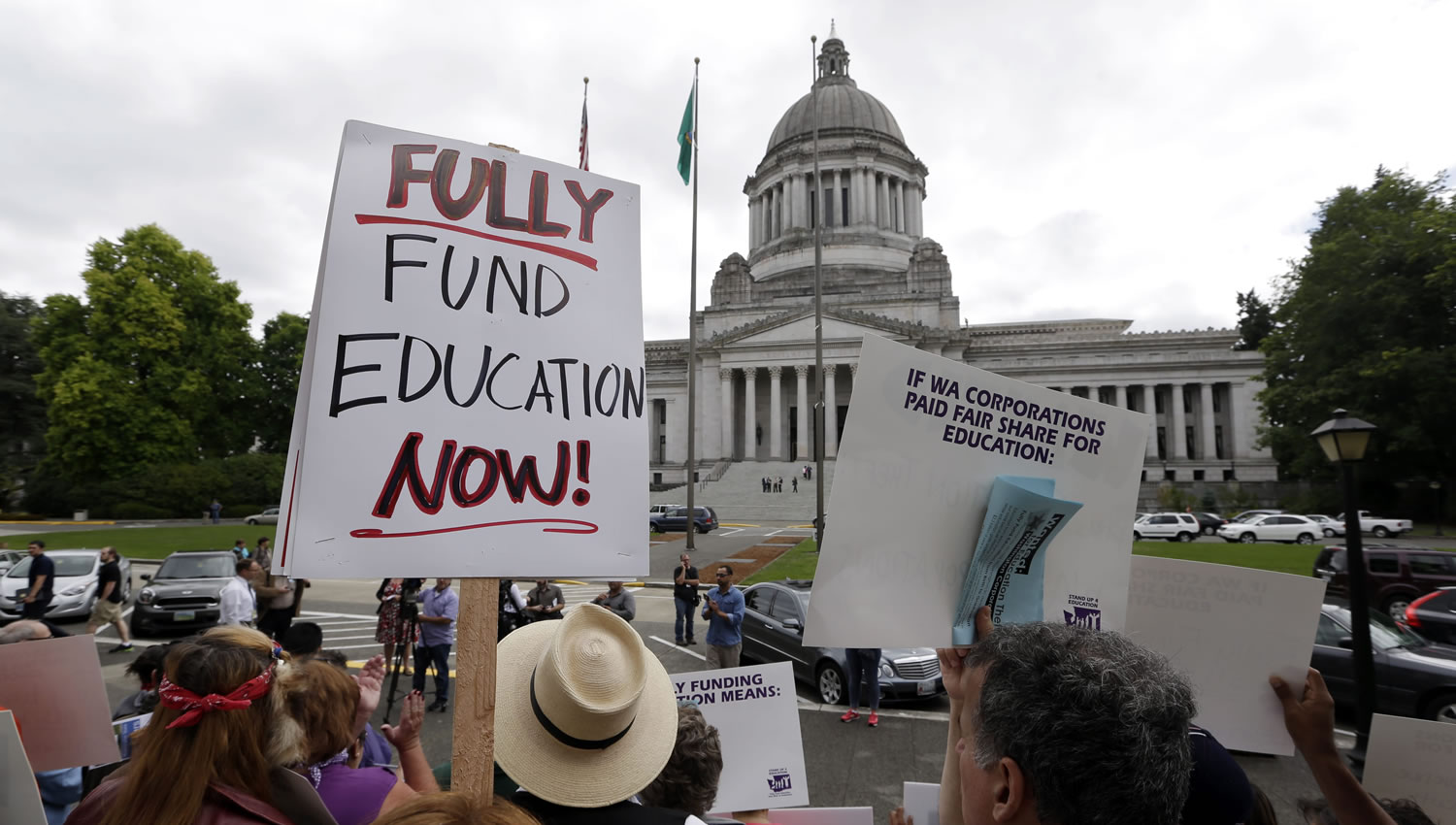Vancouver Public Schools' superintendent said the state's top court made the right decision on Thursday when it issued an order holding the Legislature in contempt for not adequately funding the state's public schools.
"Decades of delay and parsing by the Washington State Legislature should come to an end immediately," Steven Webb said in a statement. "The Legislature must fulfill its constitutional duty. The Supreme Court got this right. The Legislature is not above the law."
The Washington Supreme Court did not impose sanctions but said it would if lawmakers do not meet the requirements of the McCleary decision, and adequately fund the state's education system, by the end of the 2015 legislative session.
Rep. Paul Harris, R-Vancouver, said that's always been the plan.
"The Legislature has always intended to deal with it this session," Harris said, noting a two-year state budget will be drafted when the Legislature convenes in January.
"I believe both sides, both Republicans and Democrats, have said it's on our top priority list and I believe it will be addressed," he said.
In the current biennium lawmakers funneled an additional $1 billion to education. But to meet the court's requirements, the additional funding likely needs to be closer to $3 billion.
"We made some moves, but didn't get as far as we wanted to," said Rep. Monica Stonier, D-Vancouver. "Now, both sides will have to negotiate."
Democrats have raised the idea of ending certain tax exemptions, while Republicans have championed funding education first and figuring out what other spending to slash afterward.
"I'm not sure how we'll get there, but that's a conversation we'll have in session and if we don't reach (a deal) we'll be stuck in town until (we) do," Stonier said.
Gov. Jay Inslee called the court's decision "unprecedented," but added it should surprise no one.
The governor called it a "critical moment in our history," and said it will take the "help of everyone in Washington state" to succeed.
-- Lauren Dake



